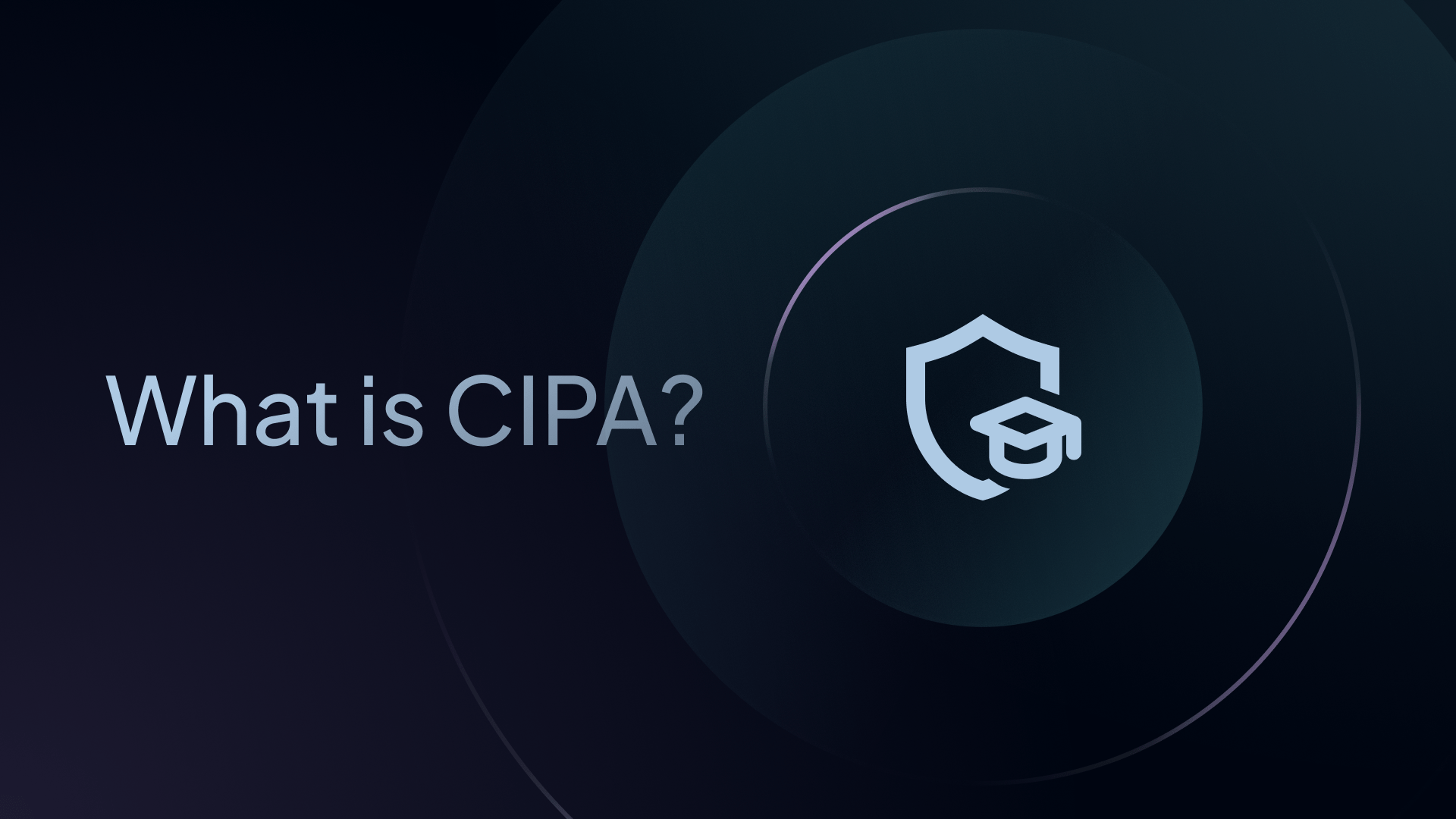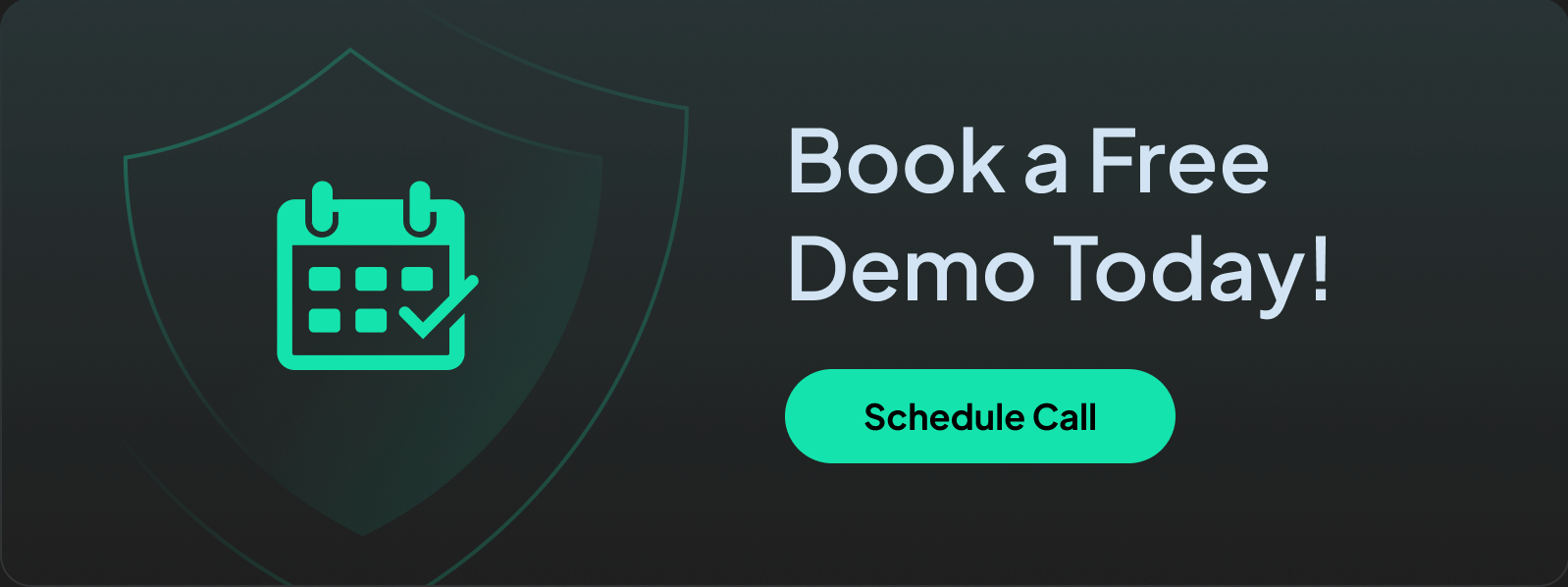What is CIPA (Children's Internet Protection Act)?
Learn what the Children's Internet Protection Act (CIPA) is, how it protects kids online, and the best tool to ensure CIPA compliance.

The internet can be a powerful educational tool, but it also comes with risks, especially for young learners.
The U.S. Congress enacted the Children’s Internet Protection Act (CIPA) to ensure a safer online environment for students.
This law requires schools and libraries to implement measures protecting minors from harmful online content.
In this article, we’ll explore CIPA, why it’s essential, and the key requirements educational institutions must follow to stay compliant.
What is CIPA (Children’s Internet Protection Act)?
CIPA mandates that K-12 schools and libraries monitor children’s online activity and behavior, secure their data, and safeguard them from online threats and illegal or inappropriate content – essentially, protecting minors from the dangers of browsing the internet. In exchange, these schools and libraries receive federal funding (E-Rate) to help enforce these security measures.
CIPA was passed into law by the United States Congress in 2000. In June 2003, the United States Supreme Court made this mandate constitutional, meaning that all eligible schools and libraries must be CIPA compliant.
Why is CIPA important?
CIPA is important since it restricts access to malicious or inappropriate content on the internet, therefore protecting minors, providing a safe learning environment, and securing – often – necessary funding for schools.
On a broader level, it fosters a safe and conducive online learning environment for students and promotes digital citizenship.
Protection of minors
At its core, CIPA safeguards minors from accessing harmful or inappropriate content on the internet, thus protecting vulnerable and impressionable children. This includes cyberbullying, explicit material, and other online dangers while browsing the web, and on a high level, is the main reason why CIPA is so important.
Providing a safe learning environment
Schools and libraries are tasked with providing a safe learning environment for their students, and left to their own devices, this isn’t always guaranteed. However, CIPA takes a proactive approach by ensuring educational institutions meet certain standards and requirements.
By preventing students from being exposed to material that can hinder their progress, children are provided with a safe and secure learning environment where they can focus on excelling in academia.
Digital citizenship
The internet isn’t going anywhere, and learning how to navigate the digital world responsibly and ethically is paramount. This is known as digital citizenship.
By complying with CIPA provisions, schools have the opportunity to teach students about online safety, privacy, and ethical behavior, which they can then apply in the real world.
Secure necessary funding
Funding is a point of contention for numerous educational institutions. Many schools and libraries simply don’t have the budget to provide students with the essential resources and services they need to perform well.
CIPA combats this issue by providing federal funding to all CIPA-compliant schools, which gives them the finances and capability to not only protect students online but also provide the necessary educational resources for children to succeed.
Legal and regulatory compliance
CIPA is a federal law, and its provisions are mandatory for eligible institutions. Complying with CIPA shows a commitment to adhering to legal and regulatory standards related to internet safety and child protection.
Failure to do so often results in the loss of much-needed funding. In certain cases, it can also lead to hefty fines and penalties.
What are the CIPA requirements?
To be CIPA compliant, schools and libraries must address the following:
- Restriction of minors’ access to inappropriate content
- Restriction of minors’ access to harmful material
- Safety and security when using email, chat rooms, and other communication channels
- Unauthorized access, such as hacking and other illicit activities
- Unauthorized disclosure of personal information of minors
They are also required to provide monitoring mechanisms and education to minors on how to browse the internet ethically and responsibly.
Knowing this, here are the key things educational institutions must enforce on their networks and devices.
Content filtering
The internet must be filtered to protect students from harmful or inappropriate content, such as adult content, obscenity, or offensive material.
Monitoring traffic
Educational institutions must have a process for monitoring students’ online activities. This is to ensure they aren’t engaging in harmful practices or behavior, such as cyberbullying and self-harm, or trying to access harmful material, such as gambling or illegal content.
Only a monitoring process can stop these activities, which is why it is crucial for CIPA adherence.
Safe and secure communication channels
There are many ways to communicate with others on the internet, such as emails, forums, chatrooms, etc. Communication on these platforms should be safe and secure, ensuring students do not expose themselves to third parties who can influence or expose them for malicious intent.
As such, it’s up to schools and libraries to have security protocols that create a safe communication environment.
Unauthorized online access to minors
Students should not be accessible online by unauthorized people while they’re on-site. Therefore, educational institutions must ensure they provide supervision and protection to students so they are safeguarded from hacking and other forms of unlawful activity that can bring them into contact with unauthorized actors.
Unauthorized disclosure of information
Students’ personal information must be kept private and confidential at all times. This means that nobody should illegally use and disclose the personal information of minors using the school or library’s network.
To prevent this, sufficient cybersecurity measures must be implemented to thwart access to students’ sensitive data.
Education and training
Part of using the internet is using it ethically and legally, known as digital citizenship. Schools and libraries are responsible for providing educational training and information to their students on how to browse the internet responsibly, teaching them about cyberbullying awareness, how to respect the ideas and opinions of others, how to follow laws and codes of conduct, etc.
This training is imperative to ensure students are adequately prepared to interact with others on the internet going forward, whether that’s outside of school or in their adult life.
Control D Assists With CIPA Compliance For Your Organization
Control D is an advanced DNS management solution that provides all the necessary features required for CIPA compliance in a single, easy-to-use platform. It offers:
Customizable filtering against inappropriate content
Choose from nearly 1,000 Filters and Services to customize your content filtering policies.
Comprehensive monitoring, reporting, and analytics
View query log data to monitor students’ online activity and generate detailed reports directly in the Dashboard.
Real-time threat protection
Take advantage of Control D’s industry-leading malware filter that detects and blocks 99.97% of malware and threats.
Seamless integration and scalability
Control D can be set up in a matter of minutes for easy deployment across your entire network and devices.


